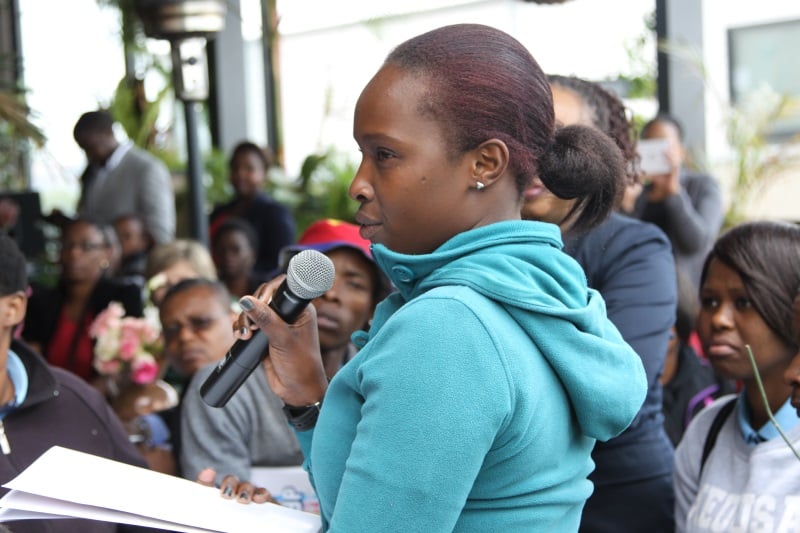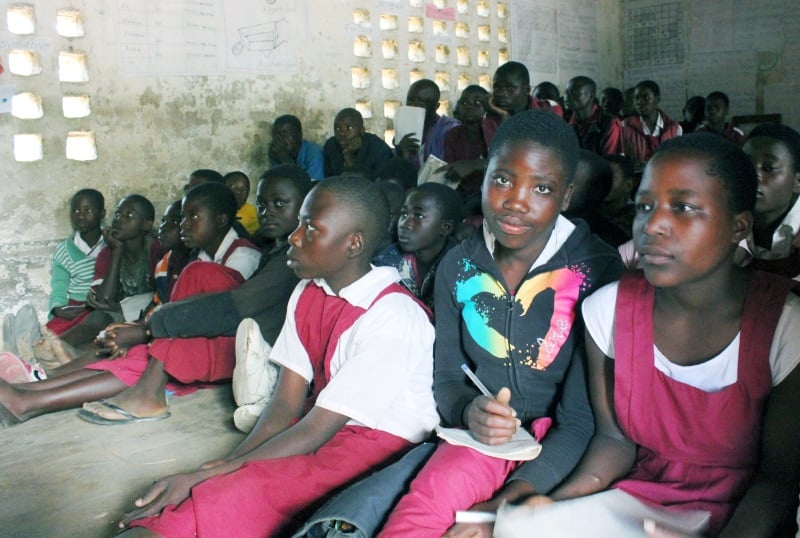The Conference, organized by the African Union Commission in collaboration with the South African government, to share best practices, enhance south-south cooperation and galvanize States to address the issue, brought together 500 delegates including 28 Health ministers, representatives of United Nations (UN) agencies such as the United Nations Development Fund (UNFPA) , WHO and UNICEF, development partners and civil society organizations.
The need for an international conference on maternal health was identified at the CARMMA High-level Event in January 2013on the sidelines of the 20th African Union summit.
Representing the UN Secretary General Ban Kimoon, UNFPA Executive Director Dr. Babatunde Osotimehin said at the opening of the conference that “it was due to the commitment and support of the African Union that fewer women were dying in childbirth in Africa and more children were surviving into adulthood than 20 years – or even 10 years ago.” It is now up to the Member States to move from policy to action, he added.
Furthermore, Dr Osotimehin urged to take home this message: “each of us can make a difference in our respective places. Make sure you can reach women, provide family planning, and ensure a pregnant woman can safely deliver her child.”
“When we choose to act together, we act resolutely and undeterred by resource constraints. To spend resources to save lives is not an expense but an investment in our common humanity,” she said.
In his opening remarks, the South African President Jacob Zuma acknowledged that though Africa achieved much in 50 years of independence from colonialism, it was crucial that the improvement of women and children’s health be added to its feats.
“As leaders, it is within our power to do everything to ensure no women dies while giving life,” he said.
For three days, delegates took part in round tables and sessions on innovations in MNCH; financing MNCH: investing in MNCH equals economic and social progress; addressing human resources for MNCH; strategic interventions to enhance newborn/child health; and accountability for MNCH.
Rights-based approach
UNFPA Deputy Executive Director Kate Gilmore facilitated a discussion on rights-based programming for MNCH. This discussion highlighted the role of a human rights-based approach as part of a comprehensive strategy to promote women’s and children’s health in Africa and in the post-2015 development agenda.
Investing in youth crucial for global health

UNFPA Representative for South Africa, Dr. Julitta Onabanjo, led a session on Investing in Youth and Adolescent Health, where it was stated that investing in adolescents was crucial to reaching global health targets.
Adolescents need comprehensive, accurate and developmentally appropriate sexuality education. More needs to be done to strengthen health sector capacity to provide adolescent-centred services. National governments have the authority and the responsibility of addressing social and cultural barriers in the provision of adolescent sexual and reproductive health education and services.
Scorecards for improving health
Ethiopian Minister of Health, Dr. Kesetebirhan Admasu, presented Ethiopia’s MNCH scorecard for accountability and action, developed as part of their commitment to end all preventable diseases in child health. “It is really helping us improve performance, as it allows us to track and improve performance in the country,” he said.
The AUC Director for Social Affairs, Olawale I. Maiyegun, spoke on promoting accountability on the continent. He stressed that accountability should be at all levels both ‘upwards’ and ‘downwards’ to the communities that are served. He urged all other Member States to institute a scorecard, as Ethiopia has done, at the national and regional levels.
Plan of Action
At the end of the conference, delegates adopted a Plan of Action Towards Ending Preventable MNCH Mortality. The final communiqué was read out by the Ugandan Minister of Health, Dr. Ruhakana Rugunda, for discussion.
WHO Assistant Director General for Family, Women’s and Children’s Health, Dr. Flavia Bustreo, said at the closing ceremony that the conference was a “major step forward” showcasing the commitment of African leaders towards ending maternal and child mortality.
Youth and women’s safety underscored

At the closing ceremony, the UNFPA Deputy Executive Director for Programmes, Kate Gilmore, speaking on behalf of Dr. Osotimehin, called for specific attention to adolescents and young people to be added into the MNCH agenda.
“The price of not including them is too high. We cannot afford it. It’s time to hold ourselves accountable to their place at the table as a priority. If there is one message we’ve been given, it is this: Tomorrow is today aged 10, and it is girl. If you change the life of that girl, you will change the world,” Ms Gilmore added.
Violence against women was also given prominence with Representative of the United Nations Secretary General on Sexual Violence in Conflict, Zeinab Bangura, Special speaking on the negative impact of war-time rape.
“When women’s bodies are reduced to battlefields, it affects socio-economic development. The call to action to reduce maternal and child mortality and morbidity must also be a call for peace on the continent,” she said.
Call to implement the action plan
AUC Commissioner for Social Affairs, Dr. Mustapha Sidiki Kaloko, said that while tremendous gains had been made in the past two decades to reduce maternal and child mortality, it was not enough to meet the MDGs, and not for lack of adequate policy prescriptions.
“Success in any human endeavour is the preserve of those who persevere. Let us steer the cause with single-mindedness to see it through, to ensure the implementation of the plan of action […] for the sake of our women and the prospects of this continent,” the AU commissioner added.
South African Minister of Health, Dr. Aaron Motsoaledi, in reflecting on the conference, urged the delegates to ensure the tools and processes shared were implemented, chiefly to reduce the stubbornly high newborn mortality rate on the continent.
The conference received significant financial and technical support from UNFPA. It was represented by a high-level delegation that included Executive Director, Deputy Executive Director, Regional Director for West and Central Africa Benoit Kalasa, Deputy Regional Director for east and Southern Africa Lina Mousa, Regional Director for Arab States Mohamed Abdel-Ahad and Chief Liaison Officer for Africa Serge Bounda, several UNFPA country representatives from Benin, Niger, Sierra Leone and South Africa to name a few, as well as regional and Headquarters advisors and experts on Maternal health, HIV and Communication.
Also, 170 participants attended a preconference workshop on Maternal Death Surveillance and Response (MDSR) that the UNFPA helped organize.
On the sidelines of the event, UNFPA Executive Director had one-on-one discussions with Health ministers. He also had a discussion with about thirty youths from various African countries on 2nd August 2013.
During the session, Dr Osotimehin shared with youths the vision of the UNFPA and its actions for the coming years meant to give youths better chances to achieve their potential.
Lindsay Barnes, ESARO contributed to this story



